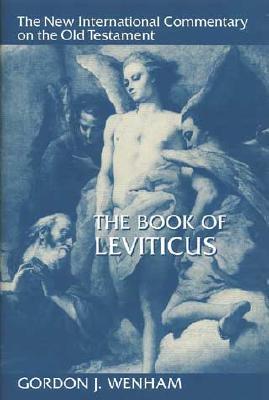TL;DR
Gordon J. Wenham's commentary on Leviticus revives this often-overlooked biblical text by exploring its original meaning and theological significance, emphasizing the call to holiness for contemporary Christians.
What is The Book of Leviticus about
The Book of Leviticus, the third book in the Old Testament, often viewed as challenging and outdated, is examined thoroughly by Gordon J. Wenham. This commentary seeks to uncover the original meanings behind its rituals, laws, and moral codes, emphasizing the sanctification process that God's people undergo. By exploring the text through the lens of ancient Near Eastern customs, anthropological insights, and literary criticism, Wenham bridges the gap between the ancient and modern worlds. He highlights the book's relevance to contemporary Christianity, showing how its themes resonate with the New Testament and God's ongoing call for holiness in believers' lives.
The Book of Leviticus 6 Key Takeaways
Sanctification as the Central Theme
Leviticus emphasizes the process of sanctification, teaching that after receiving God's forgiveness, believers are called to live holy lives reflecting their relationship with Him.
Ritual Sacrifices Explained
The first seven chapters detail five types of ritual sacrifices which illustrate the importance of atonement and covenant relationship with God.
Priestly Purity Standards
Chapters 8-15 outline the qualifications for priests and standards of ritual purity, underscoring the significance of holiness among those who serve in spiritual leadership.
Covenant Renewal
The final chapters (16-27) focus on Israel's annual feasts, moral responsibilities, and the commitment to covenant faithfulness, reinforcing the ongoing relationship between God and His people.
Comparative Analysis with Near Eastern Cultures
Wenham draws comparisons between Levitical practices and those of other Near Eastern cultures, providing a broader context for understanding the rituals and laws of Israel.
Enduring Theological Value
Wenham connects the teachings of Leviticus to New Testament passages, illustrating how foundational the concepts of holiness and sacrifice are to Christian theology.
The Book of Leviticus Videos
Book of Leviticus Summary: A Complete Animated Overview
Top The Book of Leviticus Quotes
- Leviticus is not just a record of ancient laws but a timeless call to holiness that resonates through generations.
- Understanding the rituals of Leviticus opens a window to divine grace and the ongoing need for atonement.
Who should read The Book of Leviticus?
This book is ideal for pastors, theologians, and anyone interested in deepening their understanding of biblical texts, particularly those who seek to connect the Old Testament to modern Christian theology and ethics. Wenham's insights encourage readers to see the relevance of Leviticus in their spiritual lives today.
The Book of Leviticus Best Reviews
- Gordon Wenham's insightful commentary on Leviticus reclaims this often-misunderstood book, revealing its profound relevance to both ancient and contemporary faith practices. — Biblical Review Journal
- Wenham expertly bridges the cultural gap between ancient rituals and modern spirituality, making Leviticus accessible and applicable for today's believers. — Christian Literature Today
People also liked these summaries
The Book of Leviticus FAQs
What are the main topics covered in Leviticus?
Leviticus is structured into three main sections: the first seven chapters focus on ritual sacrifices, chapters eight to fifteen discuss priestly qualifications and ritual purity, and the final chapters outline annual feasts, moral living, and Israel's covenant faithfulness.
Why is Leviticus important for Christians today?
Leviticus offers foundational truths about holiness, sacrifice, and God's call to His people. Understanding these concepts enriches Christians' spiritual lives and their understanding of the New Testament.
